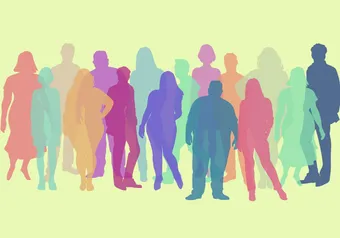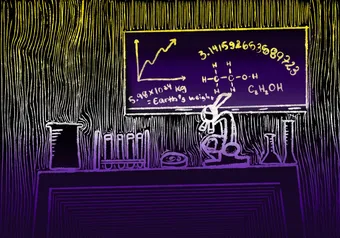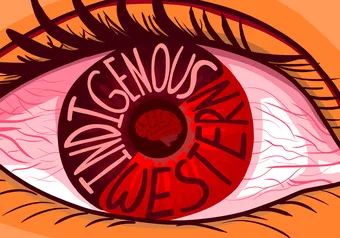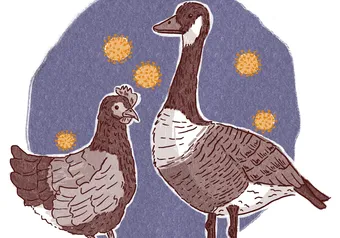Nestled in the Pacific Ocean is a constellation of island communities, whose populations have stewarded, sustained themselves and built a wealth of cultural traditions among its waters.
These long-standing relationships with the ocean were put on display at an event held at UBC Vancouver on February 2, titled “How Ancestral Voyaging Mobilizes Knowledge of Biodiversity and Climate Change.” The event, organized by the Institute for the Ocean and Fisheries and the School of Public Policy and Global Affairs, has been four years in the making. It brought together representatives from various Pacific Islands to share both their ancestral knowledge on ocean voyaging and ongoing initiatives to revive imperiled traditions.
Despite their rich history and continued utility for island voyagers, ancestral ways of knowing and teaching about the ocean — such as using star groups, seasons and wind directions for navigation or experiential knowledge about the marine environment to protect biodiversity — are often pushed to the periphery in the realm of academia, said Dr. Mimi Kaveia George from the Pacific Traditions Society.
According to Delsie Betty Bosi from the Holau Taka Taumako Association, storytelling is integral to knowledge systems on her island of Taumako. In local mythologies, women are portrayed as “custodians of the land and sea,” which reflects the imperative work that Taumako women continue to take on throughout the canoe construction process.
Climate change is killing culture
The Pacific Islands are among the smallest contributors to global warming, producing only 0.03 per cent of global greenhouse gas emissions. However, rising sea levels, extreme weather events and loss of biodiversity pose an existential threat to the islands’ inhabitants, who may see their islands disappearing as early as 2050.
Alongside other problems like population displacement, economic instability and food insecurity, extractive industrial activity in the Pacific Islands and the resulting environmental degradation are also expediting the pace of cultural loss.
At the same time, the region stands out as a unique microcosm of innovation. State and local leaders have adopted creative mitigation and adaptation strategies, combining ancestral knowledge with modern technologies to pave new paths in building climate resilience.
Sustainability remains a centerpiece in voyaging practices. Performing rituals, using local and organic materials to build canoes and sailing within parameters to protect marine life are practices rooted in the principle of reciprocity with the natural environment.
One such example showcased at the event was the work of Sanakoli John, a prominent sailor who completed the first ever circumnavigation of the island of New Guinea in a traditional sailing canoe in 2017.
In 2019, he co-founded the Pasana School – the first traditional canoeing school in Papua New Guinea. In addition to building an intergenerational pipeline of navigational expertise, the group also promotes sustainable fishing and logging practices.
Other islands are also linking their regional initiatives to broader climate agendas. Setareki Ledua, an experienced captain of the Drua — a traditional Fijian double canoe — spoke about the connection between his goal of repopulating Fiji with 100 Druas in 10 years and working towards decarbonization.
Voyaging into the future
The simultaneous decline of sailing traditions and rise of carbon emissions produced by maritime transportation methods could be addressed through greater investment into restoring sailing skills, infrastructure and networks, Ledua said.
“The ocean is our highway. When we voyage to another place, we strengthen our ties to the oceans and the people who are living on neighbouring islands,” Ledua said.
Luke O’Grady Vaikawi founded the Holau Vaka Taumako Project with the goal of training youth to build and navigate the vaka (canoe). He said recent disruptions to the island’s ways of life caused by the COVID-19 pandemic have left regional sea routes shuttered. These seaways not only sustain the flow of people and goods, but also mobilize important partnerships with neighbouring islands.
“The ocean itself is our family, and we feel that it is us,” Vaikawi said. “We want to work together to revive the practices, roots and relationships that will save our mother ocean and humanity.”
Mario Jacob Benito, a photographer and member of the Houpolowat clan, echoed that the threat of losing these maritime traditions is pressing. On his island of Micronesia, canoe-building is a collective project sewn into the social fabric of the community, but these ways of life are increasingly under threat.
Together with his son, Lolobeyong Valentino Rogopes Benito, Mario Benito is helping to run the 500 Sails project with the goal of leveraging traditional systems of knowledge transmission to protect indigenous culture. The organization provides free training programs on canoe building and sailing on the Mariana Islands.
Lolobeyong, who is 19 years old, stressed the urgency of cultural preservation for the sake of posterity.
“If we don't get this right, what's going to happen to the future generation?" said Benito. "If we do not keep this knowledge going, they are going to think they don’t even have a culture because we weren’t really careful with the culture now."
First online
Share this article








